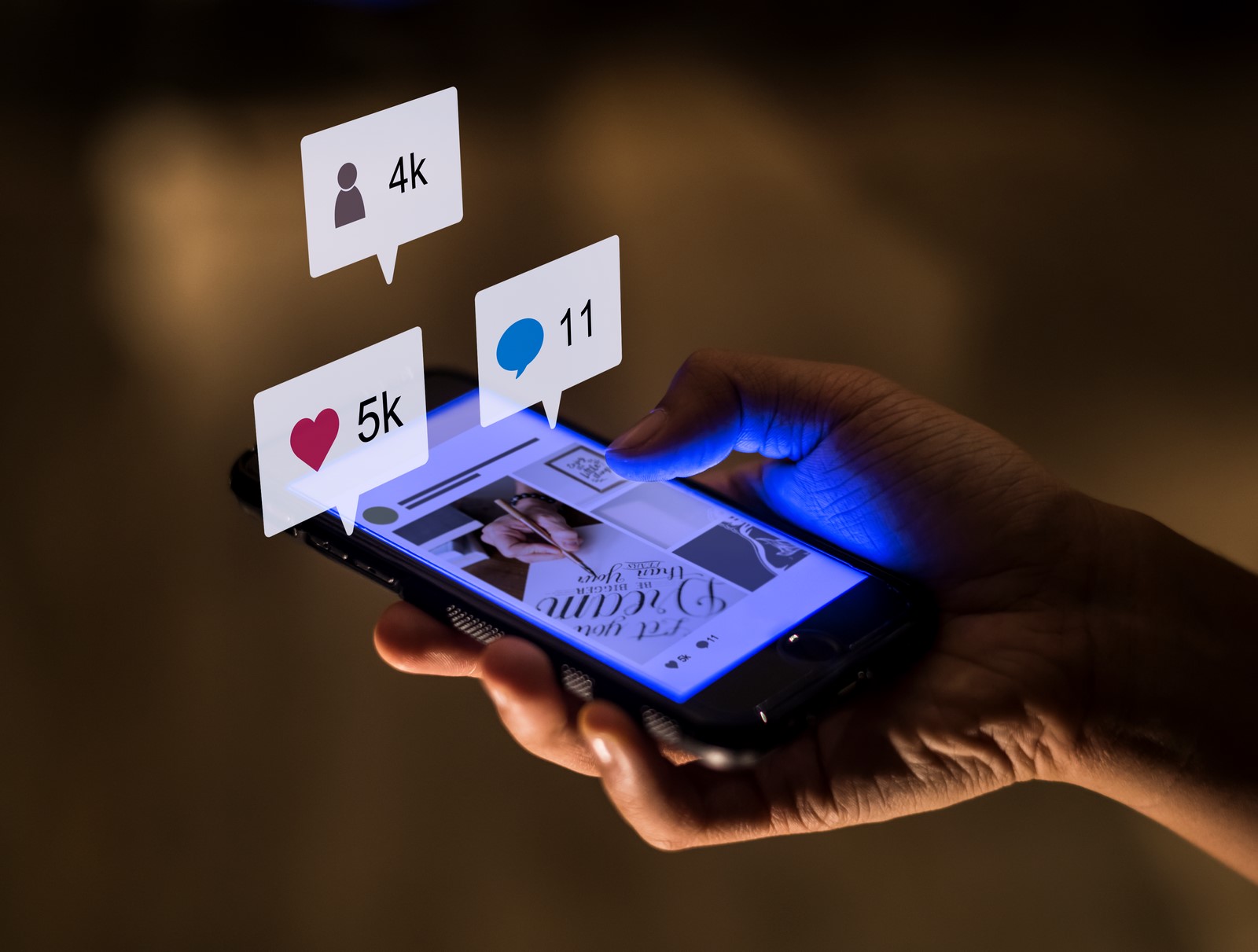 Digital marketing encompasses all marketing efforts that use an electronic device or the internet. Businesses leverage digital channels such as search engines, social media, email, and their websites to connect with current and prospective customers.
Digital marketing encompasses all marketing efforts that use an electronic device or the internet. Businesses leverage digital channels such as search engines, social media, email, and their websites to connect with current and prospective customers.
Marketing has always been about connecting with your audience in the right place and at the right time. Today, that means you need to meet them where they are already spending time: on the internet.
How Do You Define Digital Marketing?
Digital marketing is defined by the use of numerous digital tactics and channels to connect with customers where they spend much of their time: online. From the website itself to a business's online branding assets - digital advertising, email marketing, online brochures, and beyond - there's a spectrum of tactics that fall under the umbrella of "digital marketing."
The best digital marketers have a clear picture of how each digital marketing campaign supports their overarching goals. And depending on the goals of their marketing strategy, marketers can support a larger campaign through the free and paid channels at their disposal.
A content marketer, for example, can create a series of blog posts that serve to generate leads from a new ebook the business recently created. The company's social media marketer might then help promote these blog posts through paid and organic posts on the business's social media accounts. Perhaps the email marketer creates an email campaign to send those who download the ebook more information on the company. We'll talk more about these specific digital marketers in a minute.
Here's a quick rundown of some of the most common digital marketing tactics and the channels involved in each one.
Search Engine Optimization (SEO)
This is the process of optimizing your website to "rank" higher in search engine results pages, thereby increasing the amount of organic (or free) traffic your website receives. The channels that benefit from SEO include:
Websites.
Blogs.
Infographics.
Content Marketing
This term denotes the creation and promotion of content assets for the purpose of generating brand awareness, traffic growth, lead generation, and customers. The channels that can play a part in your content marketing strategy include:
Blog posts.
Ebooks and whitepapers.
Infographics.
Online brochures and lookbooks.
Social Media Marketing
This practice promotes your brand and your content on social media channels to increase brand awareness, drive traffic, and generate leads for your business. The channels you can use in social media marketing include:
Facebook.
Twitter.
LinkedIn.
Instagram.
Snapchat.
Pinterest.
Google+.
Pay-Per-Click (PPC)
PPC is a method of driving traffic to your website by paying a publisher every time your ad is clicked. One of the most common types of PPC is Google AdWords, which allows you to pay for top slots on Google's search engine results pages at a price "per click" of the links you place. Other channels where you can use PPC include:
Paid ads on Facebook.
Promoted Tweets on Twitter.
Sponsored Messages on LinkedIn.
Affiliate Marketing
This is a type of performance-based advertising where you receive commission for promoting someone else's products or services on your website. Affiliate marketing channels include:
Hosting video ads through the YouTube Partner Program.
Posting affiliate links from your social media accounts.
Native Advertising
Native advertising refers to advertisements that are primarily content-led and featured on a platform alongside other, non-paid content. BuzzFeed-sponsored posts are a good example, but many people also consider social media advertising to be "native" -- Facebook advertising and Instagram advertising, for example.
Marketing Automation
Marketing automation refers to the software that serves to automate your basic marketing operations. Many marketing departments can automate repetitive tasks they would otherwise do manually, such as:
Email newsletters.
Social media post scheduling.
Contact list updating.
Lead-nurturing workflows.
Campaign tracking and reporting.
Email Marketing
Companies use email marketing as a way of communicating with their audiences. Email is often used to promote content, discounts and events, as well as to direct people toward the business's website. The types of emails you might send in an email marketing campaign include:
Blog subscription newsletters.
Follow-up emails to website visitors who downloaded something.
Customer welcome emails.
Holiday promotions to loyalty program members.
Tips or similar series emails for customer nurturing.
Online PR
Online PR is the practice of securing earned online coverage with digital publications, blogs, and other content-based websites. It's much like traditional PR, but in the online space. The channels you can use to maximize your PR efforts include:
Reporter outreach via social media.
Engaging online reviews of your company.
Engaging comments on your personal website or blog.
Inbound Marketing
Inbound marketing refers to the "full-funnel" approach to attracting, engaging, and delighting customers using online content. You can use every digital marketing tactic listed above throughout an inbound marketing strategy.
What Does a Digital Marketer Do?
Digital marketers are in charge of driving brand awareness and lead generation through all the digital channels - both free and paid - that are at a company's disposal. These channels include social media, the company's own website, search engine rankings, email, display advertising, and the company's blog.
The digital marketer usually focuses on a different key performance indicator (KPI) for each channel so they can properly measure the company's performance across each one. A digital marketer who's in charge of SEO, for example, measures their website's "organic traffic" - of that traffic coming from website visitors who found a page of the business's website via a Google search.
Digital marketing is carried out across many marketing roles today. In small companies, one generalist might own many of the digital marketing tactics described above at the same time. In larger companies, these tactics have multiple specialists that each focus on just one or two of the brand's digital channels.
Source: hubspot.com

